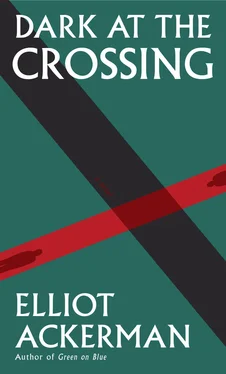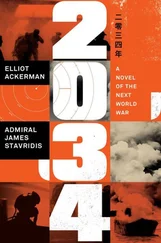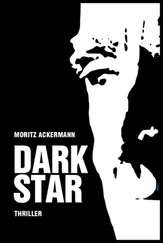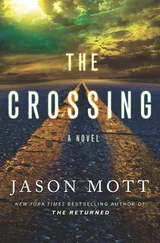Quickly, he repacked her suitcase, heaving it back into the trunk. Just as he did, Daphne stepped outside the hotel with Amir. Seeing Haris fumble with her things, Daphne lunged toward him.
“It’s okay. I can get that.”
Before Haris could reply, and before Daphne could grab her suitcase, Amir managed to step between them. “I’ll bring it inside.” He snatched the suitcase’s handle, lifting it from the Peugeot. Its weight shuttled his arm toward the ground. “What’ve you got in here, Daph?” he asked. Then his face turned grim.
Daphne placed her hand on his arm.
He flinched away. “It’s quite heavy.”
“Amir.”
“I don’t suppose I’ll be seeing you for a while.”
“Amir, please.”
Haris shouldered his book bag and turned to go inside, to leave them alone.
“Stay here,” said Amir.
Haris stood between them.
“She’s with you now.”
Haris held his eyes to the ground.
“Look at me,” Amir insisted.
Daphne tugged Amir toward her, but he pulled away, dropping her suitcase into the dust and gravel of the street. Turning his back, Amir barged inside, leaving her. Haris bent down to pick up her suitcase. Before he could, Daphne grasped the handle. “I’ve got it,” she said, trudging off after Amir.
Haris locked the Peugeot and followed.
Inside the hotel, Amir was nowhere to be seen. Athid stood with Jamil on the stairs, whispering to him the histories of the long-dead martyrs. Jamil didn’t study the portraits as much as he did Athid — the way he intoned their stories, wreathing each of their dead faces with glory. By the front window, where he’d been the evening before, the man with the white apron sat at a small plastic table next to his column of warming döner. The long knife he used to cut the meat rested across his legs. A deck of cards sat in front of him. He turned them over, one after another, piling them into two stacks, playing High-Low or, as it was called in America, War. As Haris sat in the restaurant, Daphne emerged from the back and took a place at the man’s table. He smiled, and instead of playing against himself, he began to play against her.
Evening listed toward night. With the darkness, sounds in the street — barking dogs, the easy laughter of children returning home — grew louder. Passing headlights mirrored off the restaurant’s front window. Each one caused Haris to glance up in expectation as they waited for the truck to arrive. To clear his mind of the journey to come, he watched Daphne and the man play their game. Card after card turned. It took no skill. The odds determined the winner and loser — luck, really. Seeing Daphne lose with such consistency, Haris felt anxious. Her lucklessness defied probability.
After half an hour or so, Amir appeared in the back of the restaurant. He carried a plastic bag filled with something heavy. Setting it across his lap, he sat at a table, waiting by himself. The time passed quietly until finally the man with the apron stood and laughed. He placed his long knife on the table with a hollow clank and shuffled the deck.
“This really isn’t your game,” he said to Daphne, smiling broadly.
She looked away.
A pair of wide lights slowed and then stopped in the street. They shone inside. Everyone cast their eyes into the glare, blinking against the heavy beams. A coughing diesel engine mellowed into a flat, static rumble. The headlights quivered, throwing uneven shadows into the restaurant, then flicked off. Tucked along the curb, just beyond the Peugeot, the truck idled. Out on the street a door slammed. Daphne flinched at the noise, as if struck by a single jolt of electricity. Everyone watched the front of the restaurant, where a squat man with a full paunch — the driver — stepped inside. He rested his hands on his hips, the knuckles callused and wrinkled as if carved from wood. Bending backward, he stretched out some stiffness. His eyes were swollen with exhaustion, webs of veins grasping the whites as if netting them to their sockets.
The man with the apron stood, long knife in hand. He held a piece of pita as if it were a mitt. He shaved off curling ribbons of döner, catching them and, in a single motion, rolling the bread and meat into a sandwich. Without a word, he handed the driver his dinner. This ritual seemed to be a familiar one and, seeing it, Haris took solace in the idea that their border crossing was routine.
The driver wolfed off an enormous bite of his sandwich. As he chewed with his entire face, his bulging eyes found Athid, who was still speaking to Jamil on the stairs. Glancing down at his watch, the driver nodded toward the truck. Then he left.
Athid zipped up his field jacket and headed into the street to ensure his cargo was properly loaded. Jamil followed close behind, carrying Bashar in the satchel slung across his chest. Walking past Amir, he planted himself beside his table. “Safe journey,” Jamil said, holding out his hand and trying to sound grown-up.
Remaining seated, Amir shook while looking away.
“And thank you,” said Jamil.
Amir stood clumsily, knocking against the table’s edge, his grip still clasped around Jamil’s. On his feet, he towered over the boy. Amir was groping for the right thing to say, and then blurted: “Let me know once you’ve arrived safe.”
Jamil gave Amir a confused look, as if he missed how this might be possible. Arrived safe? Safe where? At the front? His mind seemed unable to form a proper response. Instead, he replied, “Of course,” and followed Athid into the night.
Across the restaurant Daphne still sat at her table, the finished card game spread in front of her, her head hung to her chest. Haris stood quietly above her. It was time to go. Daphne looked up only when Amir stepped next to Haris. Her eyes were full and wet, her jaw clenched. Enough regret rolled through her that the grief she shared with Amir could’ve been confused for love, or at least the love they once shared, and maybe still did.
Amir reached into the bag he’d brought. From it, he pulled a heavy volume thickly annotated with multicolored Post-its— Responsible Conduct of Research by Dr. Adil E. Shamoo. “You take it with you,” he said. “It’ll help with your report.”
“Won’t you need it while I’m gone?” asked Daphne.
“I can make do for a bit,” answered Amir.
“Then I’ll see you in a bit.”
Haris watched their exchange. It seemed divorced from their argument in the street, divorced from what they both understood — Daphne wasn’t coming back. What they knew about each other, about where each was going, about where each had been, they couldn’t say. So they couldn’t say goodbye. They were trapped, waiting on opposite sides of a divide.
Daphne walked outside. Amir watched.
Haris was the last to leave. As he shouldered his way through the door, he glanced behind him. Amir had sat down at the table where Daphne had lost at High-Low. One by one he sorted through the hands she’d played, reading each of Daphne’s cards as if trying to figure out where it had all gone wrong, where her luck had failed her.
They gathered around the back of the idling truck. The air beneath Haris’s knees was warm, smelling sweetly of exhaust. A tarpaulin was draped over the flat bed, its flap buttoned shut. The driver reached up, tugging the retaining pins from the tailgate. It slammed down. He stepped onto the rear tire, throwing open the flap. Traffic sped by them, barely slowing, headlights washing over the truck bed, forming an even pulse. Illuminated by the rhythmic light were the others who’d make the crossing, families heaped together in rows. The men slept, their heads tilted back, exhausted by weeks gone by in Kilis or Antep eking out a wage. The women bent forward, tending anxiously to their children, readying for a return to the war. A few sets of eyes peered at Haris, Daphne, and Jamil, but with little interest, their stares returning to where they sat, and the darkness.
Читать дальше












